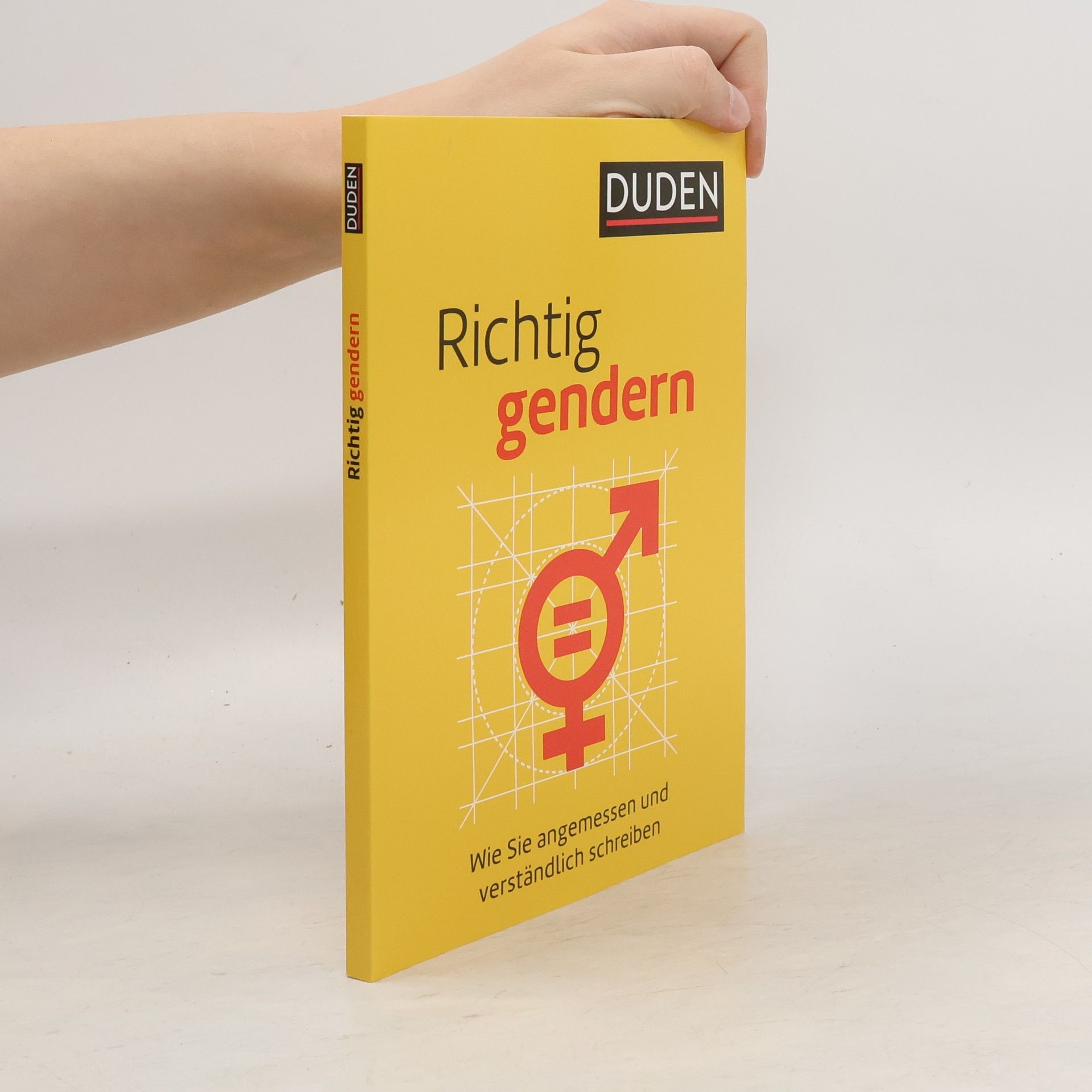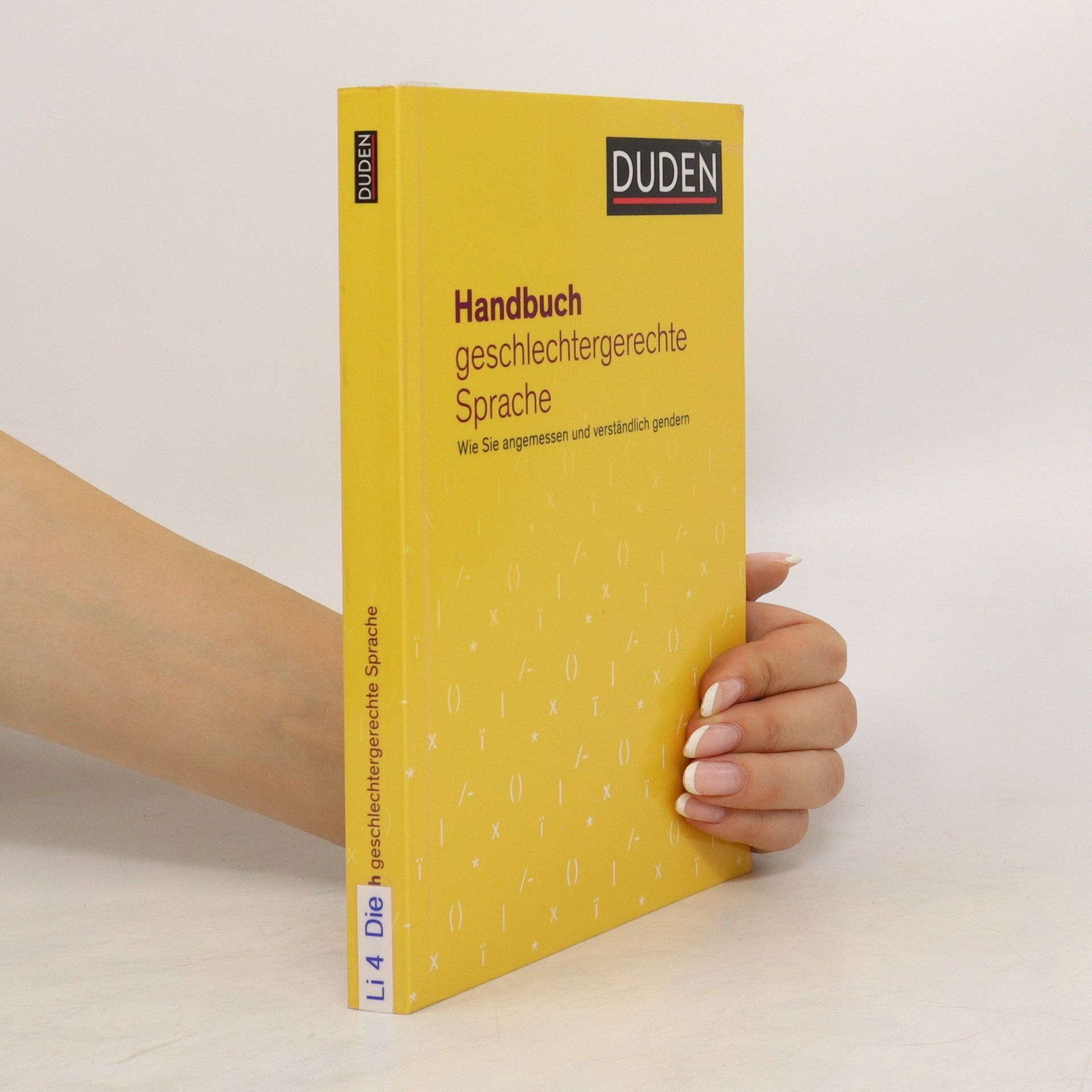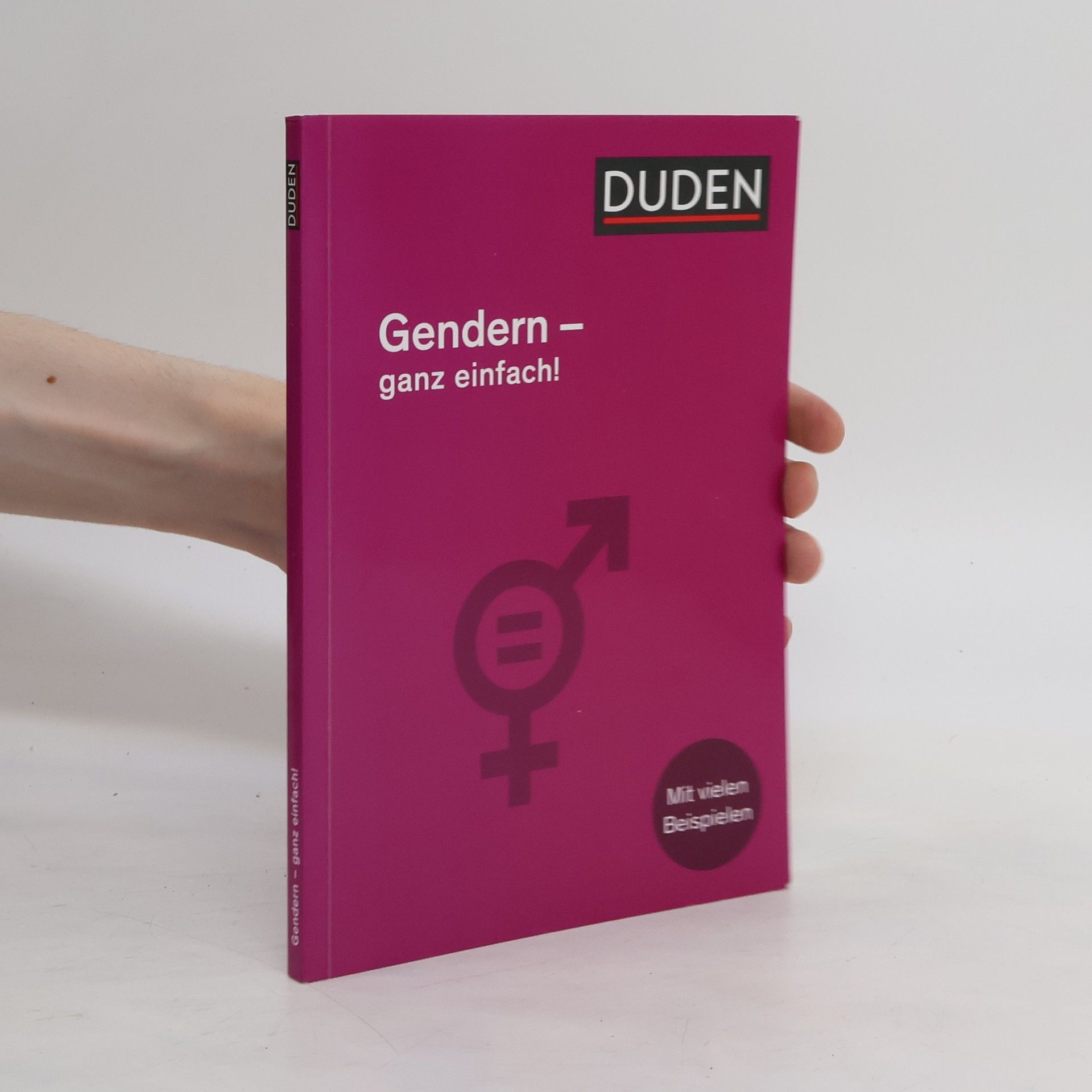Gabriele Diewald Book order (chronological)






Duden – Grundwissen Grammatik
Fit fürs Studium
Sie studieren Germanistik, Deutsch als Fremdsprache, Deutsch für das Lehramt, eine Fremdsprachenphilologie oder ein verwandtes Fach? Oder Sie interessieren sich für einen dieser Studiengänge? Mit diesem Band können Sie sich gezielt auf das Studium vorbereiten und Ihre Kenntnisse im Studium erweitern: Wiederholen Sie das in der Schule vermittelte grammatische Grundlagenwissen, vertiefen Sie es, lernen Sie Neues, testen Sie Ihre Kenntnisse und wenden Sie Ihr Wissen an! - Das Basiswissen Grammatik leicht verständlich dargestellt - Zusammenfassung und Systematisierung: Wozu Grammatik? - Alle Abschnitte mit Übungen - Lösungen am Ende des Buches
Das Handbuch erläutert, wie geschlechtergerechte Texte verfasst werden können, um Lesbarkeit und Inklusion zu gewährleisten. Die Autorinnen diskutieren die sprachwissenschaftlichen Grundlagen des Genderns und die sprachlichen Mittel des Deutschen. Es richtet sich an alle, die sich mit der Debatte um gendergerechte Sprache beschäftigen.
Texte geschlechtergerecht zu formulieren ist heute in vielen Institutionen und Firmen wichtig. Aber wie macht man das geschickt, sodass gut lesbare und verständliche Texte entstehen und sich die Empfänger/-innen auch wirklich angesprochen fühlen? Und was hat eigentlich die Debatte zum Gendern mit unserem täglichen Leben zu tun? In diesem Handbuch zeigen die Autorinnen, dass unsere Sprache als Spiegel der Gesellschaft fungiert und geschlechtergerechter Sprachgebrauch inklusiv wirkt. Sie finden - allgemeinverständlich formuliert - die sprachwissenschaftlichen Grundlagen des Genderns sowie die sprachlichen Mittel, die das Deutsche dafür zur Verfügung hat, und es führen die Autorinnen an zahlreichen Texten aus unterschiedlichen Bereichen vor, wie diese geschlechtergerecht (um)formuliert werden können. Für alle, die sich mit der gesellschaftlichen Debatte zum Thema Gendern auseinandersetzen und geschlechtergerecht formulieren möchten
Das Gendern von Texten ist nicht nur ein Pressethema, sondern es wird derzeit in vielen Institutionen und Firmen zur gelebten Praxis. Dennoch bleiben bei den Schreibenden viele Fragen, wie man das Prinzip am besten umsetzt. In Ganz einfach! Gendern gibt die Dudenredaktion Ratschläge, die in der Praxis erprobt wurden: - Welche sprachlichen Möglichkeiten gibt es überhaupt für das Gendern? - Welche wähle ich für meine Institution, Firma, für meinen Text? - Wie vermeide ich, dass der Text zu sperrig wird? Mit vielen Beispielen aus verschiedenen Textsorten.
Duden, richtig gendern
- 128 pages
- 5 hours of reading
Gendern ist in vielen Institutionen und Firmen zum Standard geworden, aber wie macht man es richtig? Die Ratschläge der Dudenredaktion: - Männer, Frauen und wie viele Geschlechter noch? - Welche sprachlichen Möglichkeiten gibt es für das Gendern? - Welche wähle ich für meine Institution, Firma, für meinen Text? - Wie vermeide ich, dass der Text zu sperrig wird? Mit einem Abriss über Geschichte und Funktion des Genderns